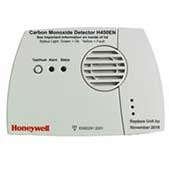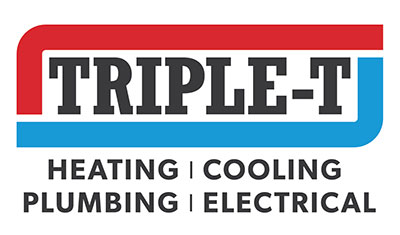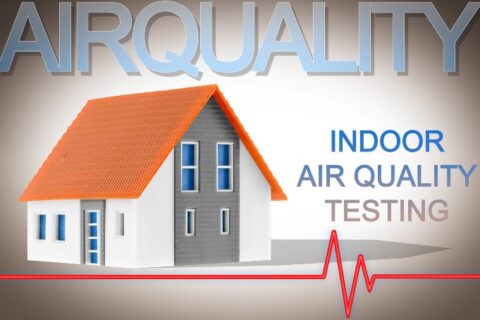Does Your Home Need a Carbon Monoxide Detector?

Carbon monoxide or CO is an odorless, invisible gas that fatally poisons over 400 Americans every year. It’s produced from the incomplete burning of fuels such as coal, wood, propane and natural gas. This means that it is often produced by internal combustion engines that power cars, lawnmowers, and generators, or gas or charcoal grills, but it can also be a product of an old or faulty furnace.
CO poisoning is more common during the winter months when homes run their furnaces almost non-stop and keep their vehicles in attached garages. The symptoms of CO poisoning are similar to the flu and include headache, nausea, fatigue, shortness of breath and dizziness.
What Is a Carbon Monoxide Detector?
A carbon monoxide detector or alarm is a device that measures the CO levels in your home and since CO is odorless and invisible, the only way to detect the deadly gas is with a carbon monoxide detector. Some detectors have digital readouts that allow homeowners to monitor the levels of CO themselves, but all will sound an alarm when CO levels become dangerously high.
Carbon monoxide detectors are similar to smoke detectors in the way they function. Also like smoke detectors, they must be regularly tested to ensure that they are still working. Most carbon monoxide detectors run on batteries that need to be replaced over time. There are different styles of CO detectors, including types that plug into a power outlet.
Why You Should Have a Co Detector?
Every home should have at least one carbon monoxide detector, with multi-level homes needing one for each floor. The U.S. Consumer Product Safety Commission recommends that homes have a CO alarm in the hallway of every separate sleeping area of the home and that alarms cannot be covered by drapes or furniture.
Carbon monoxide detectors are required by law in many states and local jurisdictions. In Utah, the law currently requires that CO alarms be on each habitable level in new residential structures, which are regulated by state residential code, and that are equipped with fuel-burning appliances. Some states have an exemption for homes that do not have attached garages or intern CO-producing sources such as furnaces or wood-burning fireplaces.
Toxicologists have feared that these exemptions give people a false sense of security as if CO poisoning cannot happen to them. Gas can penetrate walls, which gives it the ability to get into homes from outside in some cases.
Whether or not it is required by law in your state, you should absolutely have at least one carbon monoxide detector in your home. It is the only way to know if CO levels in your house are too high. Carbon monoxide detectors are relatively inexpensive and as easy to use as a smoke detector, so there is no reason not to have one on every floor of your home.
Having clean indoor air is essential. Not only does it ensure that your home is safe and comfortable but it also provides a healthy environment for your loved ones. In addition to CO testing and CO detector sales and installation, discover Triple-T’s indoor air services and products include humidifiers, air purifiers, air purifiers, and air duct cleaning.

